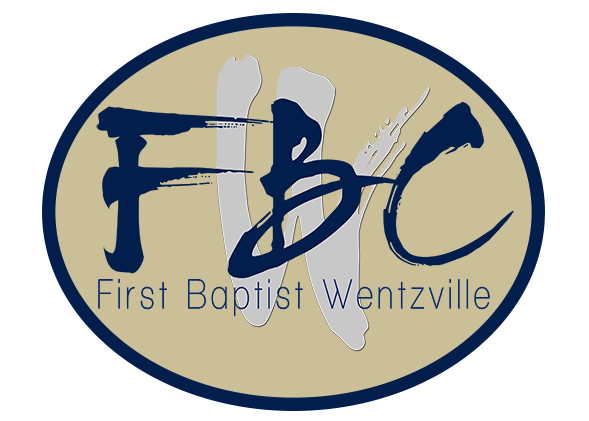The First Baptist Church of Wakefield, Massachusetts was struck by lightning on October 23, 2018. As a result, a seven-alarm fire spread quickly through the church and destroyed the building. Somehow a single painting that hung in the front entrance of the church was unharmed. It was a painting of Jesus standing with outstretched hands.1 In the middle of their heartbreak and devastating loss, the church members and pastor saw this painting as a sign of hope—a reminder from Jesus that “I AM still with you.”
In these uncertain, chaotic days that seem to go on and on, it helps to remember Jesus is still with us today. When everything seems hopeless and out of control, we can go to God’s Word to be refreshed and strengthened and to be reminded of all Jesus continues to do for us. One of the good places to begin our study of Jesus is in the Gospel of John.
In John’s gospel, Jesus shocked the people around Him when He began to describe Himself as “I AM.” The religious people of that day felt this was a title that could only be used for Almighty God and considered it blasphemy when Jesus applied it to Himself. They based their belief on Exodus 3:13-14:
Moses said to God, “Suppose I go to the Israelites and say to them, ‘The God of your fathers has sent me to you,’ and they ask me, ‘What is His name?’ Then what shall I tell them?” God said to Moses, I AM who I AM. This is what you are to say to the Israelites: ‘I AM has sent me to you.’”
Despite the opposition, Jesus continued to use this phrase to describe Himself. He also stated in John 10:30, “I and the Father are one,” which amazed the religious people of His day. Let’s expand our view of who Jesus is by looking at seven ‘I AM’s’ of Jesus in the Gospel of John.
- I AM the Bread of Life (John 6:35)
At the beginning of chapter 6, Jesus feeds the 5,000. The crowd then discovers that not only could Jesus heal them, He could feed them too! Jesus’ popularity surges to the point where they are about to make Him King over them (John 6:15). In response—and to ensure their zeal doesn’t hasten God’s plan—Jesus withdraws to the mountain to be alone. The crowd seeks Him because they want Him to continue to do what He did yesterday and heal them and feed them. Instead of physical needs, Jesus offers them and us eternal bread that gives eternal life.
- I AM the Light of the World (John 8:12; 9:5)
There are many lights in this world and we can choose to follow any of them. Following “a” light can lead you anywhere. Following THE light leads to salvation. When Jesus declares Himself as a light, it is no ordinary light. He is “THE” Light, and is sufficient for the whole world to follow. Let Jesus be our Light and share “THE” Light with others.
- I AM the Door (some translations read “Gate”) (John 10:7)
Just as there are many lights, there are many doors and each door leads somewhere. Jesus is not one of those many doors; He is “THE” door—the exclusive means of access to God the Father. Don’t miss the DOOR!
- I AM the Good Shepherd (John 10:11, 14-15)
Jesus, our Good Shepherd, loves us, leads us, cares for us, and laid down His life for us. As our Good Shepherd, Jesus isn’t merely leading us here and there with no goal. He is leading us on a spiritual journey to God the Father Himself. During trying times, remember: the Lord is our Shepherd, and we have everything we need.
- I AM the Resurrection and the Life (John 11:25-26)
The life Jesus imparts to us is not merely the hope that one day we’ll die and go to heaven. Jesus is the source of eternal life. When we know Jesus, we too have resurrection and life. We can approach life and its many challenges, trials, and storms with a sense of hope and power in Jesus.
- I AM the Way, the Truth, and the Life (John 14:6)
There are many “ways” or “paths” in this world, but despite what the world would have us believe, there is only one way to God the Father. Jesus is the way we live here and the way we lead others to live while here on earth. Jesus isn’t a truth or the spokesperson for truth. He is literally everything God wanted to say to sinful man in this world. Jesus gives life and through His earthly example defines the life we are all meant to live.
- I AM the True Vine (John 15:1-4)
Jesus states He is the true vine. This vine never dies, and it is the source of life and fruit for all vines in the vineyard. Without connection to the Christ-Vine, the branches and the fruit wither quickly and die in the heat of the sun. The vineyard is a metaphor for fruitfulness. Jesus said, “Abide in me,” and as we abide, the Holy Spirit opens our eyes to the places He wants us to go and bear fruit that honors God. Stay attached to the Vine!
This is only a feeble attempt to describe some of the attributes of Jesus—He is indescribable and so much more than my mind can even begin to grasp. But, even though we cannot totally comprehend His greatness, we can ask God to give us strength and wisdom to make Jesus, the Great I AM, change who we are.
I recently read the following poem by Helen Mallicoat2 and it’s a perfect reminder of where our focus should be in both good times and difficult times:
My Name is I AM
I was regretting the past
and fearing the future.
Suddenly my Lord was speaking:
“My name is I AM.”
He paused.
I waited.
He continued…
“When you live in the past
with its mistakes and regrets,
it is hard. I am not there.
My name is not I WAS.
When you live in the future
with its problems and fears,
It is hard. I am not there.
My name is not I WILL BE.
When you live in this moment,
it is not hard. I am here.
My name is I AM.”
- https://www.cbsnews.com/news/jesus-painting-survives-fire-that-destroyed-150-year-old-church-in-massachusetts/
- https://www.comeaside.com/my-name-is-I-am.html



